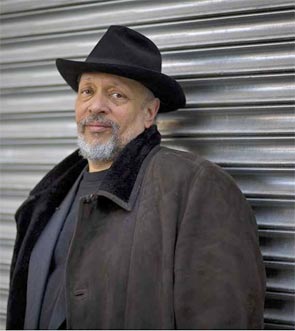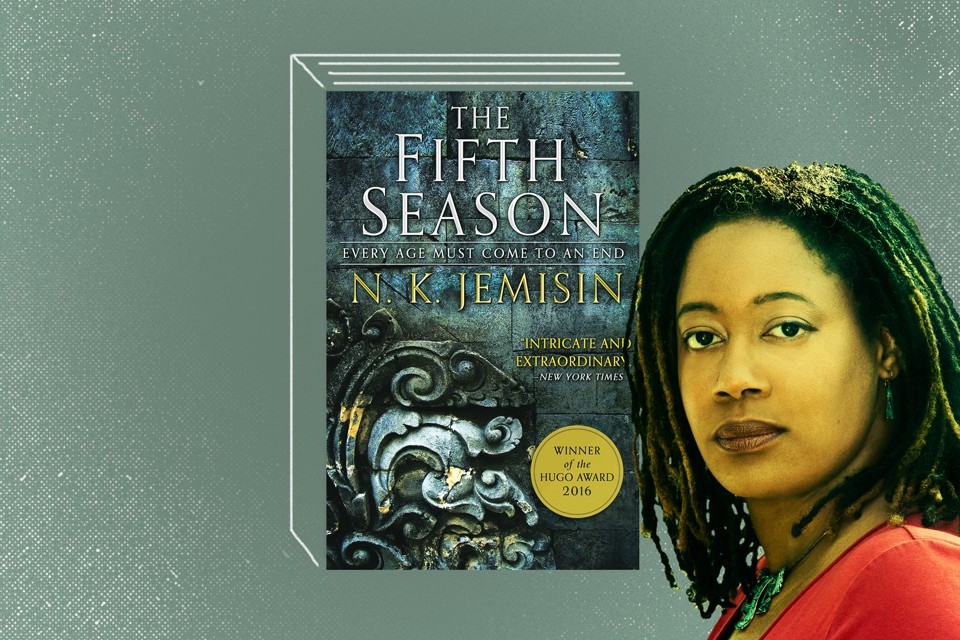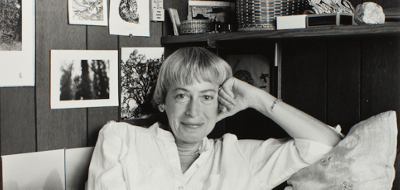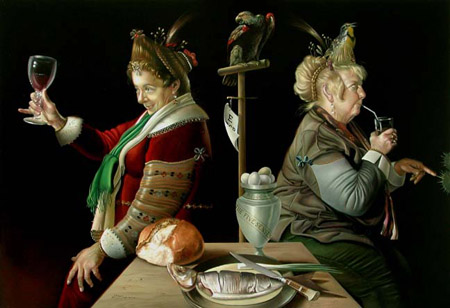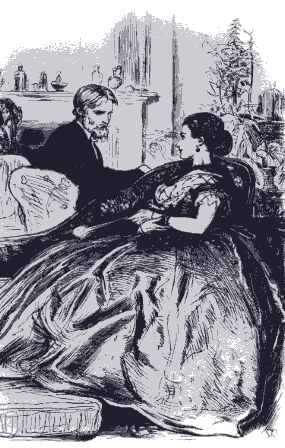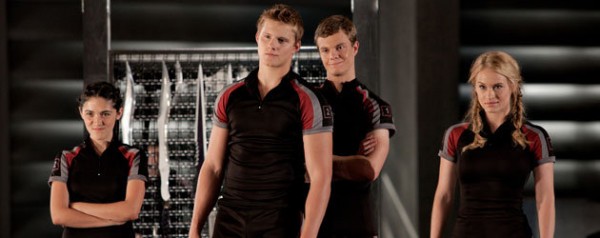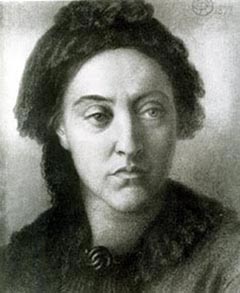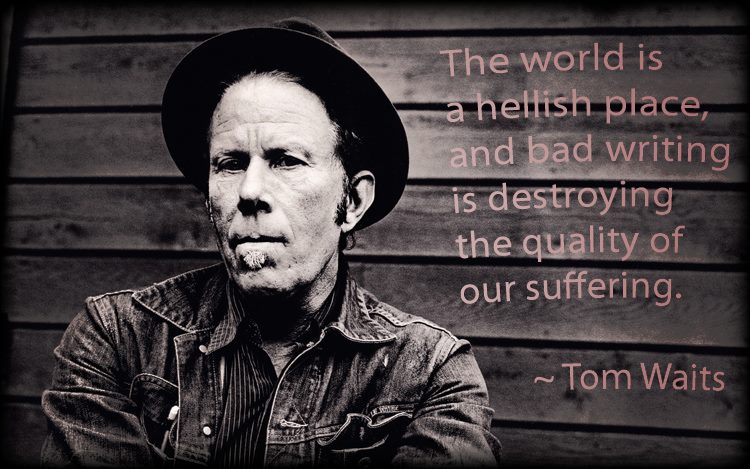Spring 2018
Novel Writing Workshop -- WRIT1-CE9357
Text: Ten Strategies to Write Your Novel by Meredith Sue Willis
Available from the NYU Bookstore, from the publisher, and from the usual online suspects.
Meredith Sue Willis Home Syllabus
Various NYU policies Individual Presentation Dates for Critiquing
Some Optional Readingsupdated 5-17-18
Class is finished, in spite of snow, sleet and rain!
Good luck with your novels-- I so enjoyed working with you all.
A class on Beginnings with Editor Will Allison.
John Attanas's notes on Writing Conferences he has attended:
1- Vermont College of Fine Arts Conference-very good teacher/student ratio. Good teachers who read from their own work each night. Good opportunity for schmoozing. Downsides-awful accommodations, greasy food, located in Montpelier, Vermont, one of the oddest and smallest of state capitals.
2- Sarah Lawrence College Festival-Great location. NY'ers do not need to live there during the conference. Good teacher/student ratio. Some schmoozing. Downsides-expensive food, much "selling" of their MFA program.
3- Stonybrook/Southampton Conference-I received a scholarship (which means you can too)! Near the water (although not right next to it). Good public readings by teachers. Downsides-lousy teacher/student ratio, acceptable living conditions, known for being cheap on food (although not when I was there).
FOR MIDDLE-GRADE/YA WRITERS:
1- NJSCBWI conference-excellent two day conference. Lots of good lectures. Good food. Driveable from NYC. Downsides-expensive, must pay for facetime, many snotty "professionals" who treat you badly (and some who treat you nicely).
2- New York SCBWI conference- A Zoo. Best thing-in midtown Manhattan
3- Los Angeles SCBWI conference- A bigger zoo. Well located in one hotel, but you need a car to tour LA. I combined it with a trip to see friends.
Suzanne Martinez on Iowa Writers Festival:
In its 32nd year, ISWF offers a broad array of workshops in a dozen genres: fiction (short story, novel), non-fiction (essay, memoir), poetry, YA, playwriting, etc. in week-long or weekend sessions between June 16th and July 27th. More than a hundred different workshops are offered. I met a woman there who has written a number of historical novels and had attended ISWF every year it has been held. In my experience the instruction varied. Over two summers, I had two excellent instructors and two mediocre ones. Most instructors have a connection with the Iowa Writer’s Program. The level of work among the students was high. I found the experience well worth it. The accommodations at the student union are plain vanilla, but clean and convenient. Iowa City has many interesting restaurants and shops. $360.00 for weekend workshops, $685.00 for week long workshops, plus room, board and travel: https://iowasummerwritingfestival.org
Note locations for make-up classes:
May 9 is in our usual room at MAVA, 362B
May 16 is at 7 East 12th Street, Room 131
Click Here for Current Week
Note changes in presentation schedule Class starts at 6:30 P.M.
Nonevaluative Grade Information
List of novels to use for learning to write novels: chosen by Spring 2018 class
Do you know these contemporary novelists?
Left to right, top to bottom: Colum McCann, Sarah Waters, Kazuo Ishiguro, Walter Mosely, N.K. Jemisin
How about some of my favorite nineteenth century masters?

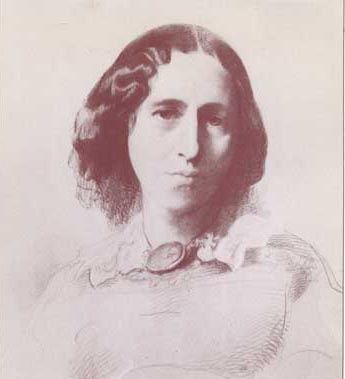
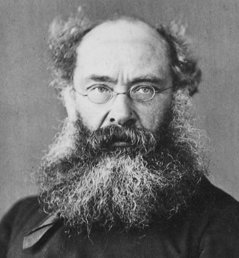

Harriet Beecher Stowe George Eliot Anthony Trollope Fyodor Dostoyevsky
And these among the late and great?
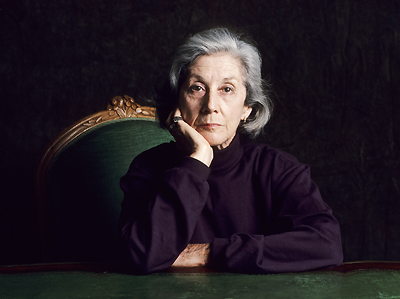
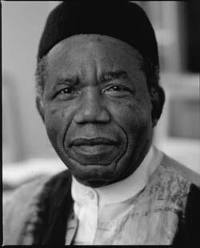
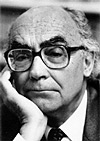
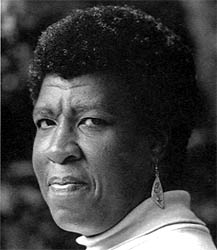
Nadine Gordimer Chinua Achebe Saramago Octavia Butler
Rest in Peace, Ursula LeGuin
NYU WRIT1-CE9357
Novel Writing (Spring 2018)New York University Spring 2018
February 14 - May 16, 2018
No class 2-21-18, 3-7-18, or 4-4-18
Wednesday, 6:30 PM - 8:50 PM
Manhattan Village Academy, 43 W. 22nd Street, Room 362B
Instructor: Meredith Sue Willis
E-mail: MeredithSueWillis@gmail.com
Homepage: Meredith Sue Willis
Scribendi's glossary of Fiction Writing Terms
The Editor's Blog on Point-of-View and Time in Fiction
A list of books about writing by well-known writers
Poets &Writers' Eleventh Annual Special on MFA Programs. The September-October 2017 issue has a chart of MFA programs and a lot of advice and ideas. You may want to consider buying a back copy of the issue
Here's a nice piece from Reedsy about the function of a prologue and whether or not you need one.
Novel Writing Workshop
Syllabus--Schedule of Classes
This class welcomes beginning novelists, but moves fast as it is also aimed at writers who are well-underway on a novel and need further discussion and stimulation to continue or restart. We begin with a quick survey of common terms for discussing novels and a look at novel structure in general.
During the course of the class, you may bring a total of up-to 50 manuscript pages for critique (some of these pages will be for the whole group, some only for the teacher). For those with longer or revised manuscripts, this course may be repeated.
This syllabus will be updated regularly online, so please check this website at least once a week. Access to the website is also available from MSW's home page, look at the top left.
Please be prepared to discuss the work of classmates when they present. Assignments are optional and go only to MSW. Discuss with her if you prefer to turn in ten pages five times or two long sections of your novel-- think about how you would like your feedback. Anything you turn in to MSW, however, including the presentation pieces, counts towards the total of 50 pages to be reviewed in the course of the semester.
All writing and presentations should be from the novel you're working on.
You may request a grade for this course or a Non Evaluative mark. For the Non-Evaluative, please see the attached form. A copy of this request must be filed with the department. Send it by email to lc9@nyu.edu or kf38@nyu.edu.
No letter grade will be given below a B. To earn a B, you must complete 50 pages to the professor's satisfaction plus present work for critiquing by the class at least once. To earn an A, you must complete the 50 pages, present work for critiquing by the class at least twice, show evidence of having done any outside reading, plus participate fully in class discussions.
It should be noted that all NYU policies on academic integrity, i.e., plagiarism, are fully in effect in this course. For various NYU policies, click here.
Disclaimer: Syllabus is subject to change due to current events, guest speaker schedule changes, and/or level and interests of students.
Session 1. 2-14-18
Welcome to Novel Writing-- and Happy Valentine's Day! We'll move our novel projects forward through drafting new material, critiques, brief exercises, and conversation.
Assignments: For the first session, please bring 15 copies of a one page summary or outline of the novel (and if you are just beginning, do this as a hypothesis) plus the first page to give everyone in the class a taste of your prose style.
Reading Assignment: In Ten Strategies to Write Your Novel, read "Strategy 1: Separate Process and Product."In Class Discussions:
Structure of the course and structure of the novel.
Common vocabulary--Process versus product, pacing, when to dramatize, when to elide.
Essential importance of Point of View in all fiction.
Scene and summary. What is Scene? Why is it important? The building block of novels.
How do we evaluate fiction? What do you read? What kind of feedback do you find most useful?
What do you need from this course?
SCHEDULE PRESENTATIONS FOR CRITIQUE.
No Class 2-21-18
Session 2. 2-28-18
Writing Assignment: A passage with all the elements of a good scene: dialogue, action, narration, maybe internal monologue-- and lots of sense details!
Remember: it's your choice to do the assignments or substitute, but everything should be from your novel, and the total number of pages you may turn in for response from the instructor is 50 (that includes pieces presented to the whole group.)
Reading Assignments:
Material online on Scene if you haven't read it yet.
Read two chapters in Ten Strategies, "Strategy 2: Taste It, Touch It Smell It..." and "Strategy 4 Find Where You Stand--Point of View."
Also, take a look at http://www.meredithsuewillis.com/materials.html#povsamples and http://www.meredithsuewillis.com/materials.html#presenttense.
Look over conventional editorial marks.
In Class discussion: More on point of view and the essential importance of concrete language in fiction.
INDIVIDUAL PRESENTATIONS BEGIN. (See Schedule below).
Weather Cancellelation! No Class 3-7-18 (Watch for Make-up date!)
Session 3. 3-14-18
Assignment:: A scene with a lot of people in it-- a group scene. This might be a party; a battle; a bar;
a church dinner; a class; a museum or stadium or other public space; or other. Use some of the people as part of the setting: colorful clothes? a mass of unfamiliar faces? Think about the point of view of this scene: is it being told by someone in the midst of it or from a great distance? Is it first seen in full, as a long shot? Or is it first seen up close, from one character's sense of being lost in the crowd? Or is the point of view from the speaker's platform, from the point of view of someone who is carrying out a subversive act?
Also, do bring in the novel structure worksheet that was handed out in class.
Reading Assignment: (NOTE: the chapters in Ten Strategies to Write Your Novel aren't assigned in order) If you haven't already, be sure to read the two chapters in Ten Strategies from last week: "Strategy 2: Taste It, Touch It Smell It..." and "Strategy 4 Find Where You Stand--Point of View."
Also, read these notes on Grounding and the logistics of crowd control. Also, take a look at http://www.meredithsuewillis.com/materials.html#povsamples and http://www.meredithsuewillis.com/materials.html#presenttense.
In Class discussion: Structural worksheets; your summaries.
PRESENTATIONS (Schedule below)
Weather Cancellelation! No Class 3-21-18 (Watch for Make-up date!)
Session 4. 3-28-18
Assignment: Write a scene focused on dialogue.
Reading Assignment: Ten Strategies, "Strategy 5: Master Dialogue and Scene."Also read the material on dialogue at: Dialogue Tags ; Types of Discourse; and " Dialogue: The Spine of Fiction." (article by MSW about dialogue online). To learn techniques for writing inner dialogue, see The Editor's Blog on choices for writing "Inner dialogue." For a more concise version of this information, see Grammar Girl.
In Class discussion: Books that we find instructive for writing novels. Structuring dialogue and scene. Showing and Telling, Narrating and Dramatizing.
PRESENTATIONS (Schedule below).
No Class 4-4-18 (School vacation)
Session 5. 4-11-18
Assignment: Write a scene focused on a minor character.
Read: Ten Strategies, "Strategy 9: Master Logistics."
Excerpt from Trespassers. and brief notes on minor characters if you haven't read them yet. Also see these sample descriptions of minor characters.
In class, physical action (small motor--gesture, and large motor--action. Also movement of groups, movement through space: loglistics).
In Class discussions:
Continued: A novel you find instructive, that is, useful for learning techniques of novel writing. It isn't necessarily your favorite novel.
Discussion of staying motivated in the face of rejection and other obstacles in the course.
PRESENTATIONS (Schedule below).
Session 6. 4-18-18Assignment: Write a scene that uses a technique from film (establishing shot, jump
cut, etc.). Take a look at useful film terms and Closeup-longshot.
Reading Assignment: Ten Strategies, "Strategy 7: Use Film Techniques." Also review the second half of "Strategy 9: Master Logistics" about large scene logistics.
In Class discussion: Continue obstacles/rejection discussion; structure/the big picture. Thoughts on structuring novels. Read some here online.
Read: Check out these notes on using the present tense in narrative.
Also, for more on writing physical action , take a look at this passage from one of my novels in which a character is at a political demonstration.
PRESENTATIONS (Schedule below).
Session 7: 4-25-18

Assignment: Write a scene that uses a technique that is especially successful in fiction (interior monologue, memory, word play, flashback, summary, playing with time, etc.) . Read flashback note here.
Reading Assignment: Ten Strategies, "Strategy 3: Explore Characters from the Inside Out." and "Strategy 8: Doing What Novels Do Best"
In Class discussion: The interior life of your character.
Structure of the novel continued.
PRESENTATIONS (Schedule below).
Session 8. 5-2-18Assignment: Write the most important scene of your novel.
Reading Assignment: Ten Strategies, "Strategy 6: Structure Your Novel"
Brief marketing & publishing discussions. Discussion on places to submit work: Get on this list for regular email offerings by sending an email to CRWROPPS-B@yahoogroups.com. Try going to Facebook and searching for "Calls for submissions (poetry, fiction, art)" Sign up to get notices.
Here's some online information about submitting and marketing your work in the age of e-books and self-publishing: Take a look at notes on various kinds of publishing at Publishing Types and Print on Demand. Also see blog post by Veronica Sicoe on why she self-publishes and a Wall Street Journal article about Marlen Bodden, a former student in one of my novel classes who first self-published-- and then had her book picked up by a commercial press. Note: self-publishing should never be you first choice, but it should be on your list of possibilities.
Here are resources on Draft Notes on Getting Published
PRESENTATIONS (Schedule below).
Session 9. 5-9-18
MAKE UP CLASS: In our usual room, 362B at MAVA
Assignment: : A revision based on comments in this class. Include notes from MSW and class members. OR: something with a thing people wear–clothes, hats, jewelry, etc.
Reading Assignment: Ten Strategies, "Strategy 10: Revise Your World." Also take a look at my article Seven Layers to Revising Your Novel ( from The Writer (November/December 2012, Vol. 125, Issue 11).
In Class discussion: How we revise novels-- keeping our writing going.
PRESENTATIONS (Schedule below).
No material may be turned in for feedback after this date.
Session 10. 5-16-18
MAKE UP CLASS IS IN A DIFFERENT LOCATION:
Wednesday, May 16th at 7 East 12th Street, Room 131
INDIVIDUAL PRESENTATIONS and Farewells.
(Schedule below).
Reading Assignment: How some contemporay writers revise (from Lit Hub)
Also, if you haven't read them yet, look at Ten Strategies, "Strategy 10: Revise Your World" and at my my article Seven Layers to Revising Your Novel ( from The Writer (November/December 2012, Vol. 125, Issue 11).
Optional: Hero's Journey: Short Version
All assignments should be PART OF YOUR NOVEL. You may substitute any short section for the assignments, keeping in mind that the total submitted to MSW may not be more than 50 pages..
Blog post with commentary on novels in the present tense: pro, con, and practical ("...the story chooses the tense...")
Hero's Journey: Short Version
An article about ten best books for novelists
Jami Attenberg on autobiography & fiction: "Nonfiction, while more 'true' than fiction, is bound by limitations in part because of its responsibility to that same truth. You can know only so much in nonfiction. But with fiction, you can have it all." I'm not crazy about Attenberg's attitude in this essay, in which she comes across as having an over-developed sense of entitlement, but scroll down and find what Junot Diaz and others say about readers who want to know if fiction really happened.
A new piece in A Journal of Practical Writing on how Virginia Woolf uses the omnisicent point of view.
Literary hub has listed some weird writing residencies. Take a look!
Stephen King tweeted ((@StephenKing): Aspiring fiction writer? Cool! Here are 2 phrases you must NEVER use: "for a long moment" and "for some reason." Find another way!
Interview by MSW with former student Helen Wan, author of The Partner Track, online at the NYUSPS Center for Applied Liberal Arts blog.
List of Presenters and dates
Bibliography of Books about writing
Notes on Point of View
Proof reader's marks
Novels recommended for reading/study by students
Some quotations about writing
More Resources for Writers
Unorganized Optional Readings
Blog with warnings for writers ("Writer Beware")
Short piece in The Practical Writer on how Anthony Trollope wrote all those pages.
A sobering--and fascinating--summary of publishing in 2016: http://www.themillions.com/2016/…/the-open-refrigerator.html
The Editor's Blog on choices for writing "Inner dialogue."
Don't wait to submit if a magazine asks you to try again (aimed at women but true for everyone).
Troy E. Hill on Making a Writers' Group Work
On drafting a novel and then having to draft again: Ed Davis's blog post.
The case for keeping your novel short.
A wonderful old piece on whether writing can be taught by Kurt Vonnegut.
Article on Indie Publishing from Author's Guild
Sergio gives us the link to an article about Romance novel covers (and the men who model for them) with lots of insights into an active area of self-publishing.
YU asks that ...students remember that the evaluation period has started and that they must submit their evaluations by 11:59 p.m. on the evening of the final class. They won't accept late evaluations. If you did not receive the email, go to the following URL to complete their evaluation:sps.nyu.edu/evaluate. Log in with your NetID/Password. This is the same information you use to login to NYUHome.
Writing summaries and synopses: Daniel José Older and Jenna Moreci (thanks David Martin)
Veronica Sicoe on using stereotypes -- More from Veronica Sicoe: Why she self-publishes
Interview with Lauren Groff
Does reading literary fiction make you better at reading social clues? This study says yes.
Article on overuse of certain words
Are you thinking of writing for young adults? How old do you think a "young adult" is? Here are a couple of interesting posts about "New Adult" novels--thanks, David Martin:
http://laurajmoss.com/laurablog/?p=2202
https://aaomer.wordpress.com/2012/07/26/new-adult-the-answer-to-the-void-between-ya-and-adult
"Robin Hobb" says of her process with her epic fantasy novels, in an interview: "I have the general premise for the full trilogy in my brain when I start, but it's not usually formally committed to paper. There will be notes and cool ideas and sometimes even bits of dialogue. Often those ideas float around in my brain for years. "Then when the time comes to start writing, I do a quick chapter breakdown for the first book. I don't regard it as binding; it's more like a map of how the story might go to reach the desired endpoint. But as all travelers know, there are many routes to any destination, so if I see an interesting detour, I'll probably follow it. I may come to a dead end and have to backtrack, but there is also the chance that I'll find some really fascinating unexplored territory or meet a character I didn't expect to be traveling with.... "The bargain I make with myself is that if I suddenly see a more interesting direction for the story to take, I'll follow it. I've regretted that more than once as I ran into brick walls, but it's what keeps my world and my characters alive and interesting. If I'm always dictating to my characters, then I'm never surprised. And surprises keep the story interesting. It can also lead to moments when you realize you have to discard the last fifty pages as the story line has trickled to a halt. That's a surprise, too, but not the kind I like."
Tips for Writers
Articles for Writers
Chuck Sambuchino on how to get an agent without a query letter.
Dan Menaker on old time editing and the publishing that (used to?) make it possible--and my blog post in response.
Publishing by Crowd Funding??
Writers Digest piece on Using Real Life in your fiction.
A TED talk on world building in fiction.
More Readings
Information on Marketing: Go to the resources page, and in particular to the links in the left hand column for: Agents, Articles of interest to writers, online places to submit fiction, Book Doctors & Private Editors, Book Publishers (small), Copyright , Literary Agents, Markets for Literary Fiction, Printers: Recommended book producers (not publishers), Publicizing Your Book , and more online resources for writers.
Virginia Woolf from "Killing the Angel"
Elmore Leonard's Ten Rules for writers. You don't have to agree to be amused.
Discussion of Memoir and Fiction by Keith Maillard and Carole Rosenthal in Books For Readers Issue #80.
Phillip Roth and RIchard Wright on writing.
Article on publishing in Salon: "20 percent of a [book's] budget... pays for paper, printing and binding..."
Article on how authors get paid
"The Business of Books, by André Schiffrin," reviewed by Meredith Sue Willis (the status of publishing-- old, but has historical interest.)
Here is a funny poem by Billy Collins about workshopping poetry.
Notes on various kinds of publishing at Publishing Types and Print on Demand.
Query letters & more: Sample Query Letters from MSW ; The 5 Stages of
Work by Meredith Sue Willis Available Online:
Feral Grandmothers: Little Red's at Persimmon Tree.
"My Most Embarrassing" short short at Two Hawks Quarterly
"Tara White" as published in Bloodroot Literary Magazine 2009
"Tales of the Abstract Expressionists" as published at Tatlin's Tower;
"Recessional" as published at Coelecanth Magazine
"Scheherezade and Dunzyad" in The Pedestal Magazine
Some of MSW's Nonfiction available online:
"The Business of Books, by André Schiffrin," reviewed by Meredith Sue Willis (the status of publishing)
"On Cutting," (article by MSW about editing and revising)
" Dialogue: The Spine of Fiction," (article by MSW about dialogue)
The best novelists avoid their deficiencies :
Michael Gorra in his Portrait of a Novel: Henry James and the Making of an American Masterpiece (New York: Liverigtht, 2012), p. 160, quotes Graham Greene's essay "The Dark Backward': "A novelist's individual technique is more than anything else a means of evading the personally impossible, of disguising a deficiency....Lesser writers never realize their limitations. Many great ones stumble over something a hack might do with ease."
From a wonderful old piece on whether writing can be taught by Kurt Vonnegut:
"When the subject of creative writing courses is raised in company as sophisticated as readers of this paper, say, two virtually automatic responses can be expected. First a withering 'Can you really teach anyone how to write?' An editor of this very paper asked me that only two days ago.
"And then someone is almost certain to repeat a legend from the old days, when male American writers acted like tough guys, like Humphrey Bogart, to prove that they, although they were sensitive and liked beauty, were far from being homosexual. The Legend: A tough guy, I forget which one, is asked to speak to a creative writing class. He says: 'What in hell are you doing here? Go home and glue your butts to a chair, and write and write until your heads fall off!' Or words to that effect.
"My reply: 'Listen, there were creative writing teachers long before there were creative writing courses, and they were called and continue to be called editors.'"
Killing the Angel in the House
It was she who used to come between me and my paper when I was writing reviews. It was she who bothered me and wasted my time and so tormented me that at last I killed her. You who come of a younger and happier generation may not have heard of her– you may not know what I mean by the Angel in the House. I will describe her as shortly as I can. She was intensely sympathetic. She was immensely charming. She was utterly unselfish. She excelled in the difficult arts of family life. She sacrificed herself daily. If there was chicken, she took the leg; if there was a draught she sat in it–in short she was so constituted that she never had a mind or wish of her own, but preferred to sympathize always with the minds or wishes of others. Above all– I need not say it– she was preened when I came to write I encountered her with the very first words. The shadow of her wings fell on my page; I heard the rustling of her skirts in the room. Directly, that is to say, I took my pen in hand to review that novel by a famous man, she slipped behind me and whispered: "my dear, you are a young woman. You are writing about a book that has been written by a man. Be sympathetic; be tender; flatter; deceive; use all the arts and wiles of our sex. Never let anybody guess that you have a mind of your own. Above all, be pure." And she made as if to guide my pen. I now record the one act for which I take some credit to myself, though the credit right belongs to some excellent ancestors of mine who left me a certain sum of money–shall we say five hundred pounds a year?– so that it was not necessary for me to depend solely on charm for my living. I turned upon her and caught her by the throat. I did my best to kill her. My excuse, if I were to be had up in a court of law, would be that I acted in self-defence. Had I not killed her she would have killed me. She would have plucked the heart out of my writing.
-- Virginia Woolf, From "Professions for Women," in The Death of the Moth and Other Essays, (New York: Haircord Brace Juvenilia, 1970) 236-239.
Don't forget: if you are reading one week,
bring copies for the class the week before.
Session 2. 2-28-18
Alison Hubbard
Suzanne Martinez
No Class 3-7-18
Session 3. 3-14-18
John Attanas
Dena Ghieth
No Class 3-21-18
Session 4. 3-28-18
Monica Sullivan
Susan Amlani
No Class 4-4-18
Session 5. 4-11-18
David Martin(short)
Rani Mehta (short)
Session 6. 4-18-18
Susannah Nolan
Brian Naujelis
Steve Sullivan
Session 7. 4-25-18
Suzanne Martinez
Alison Hubbard
Monica Sullivan
Rani Mehta
Session 8. 5-2-18
Rani Mehta
David Martin
Brian Naujelis
Steve Sullivan (short)
Session 9. 5-9-18
John Attanas
Alison Hubbard (short)
Suzanne Martinez (short)
Brian Naujelis (short)
Susan Amlani (short)
Monica Sullivan (short)
Session 10. 5-16-18
Susannah Nolan
Steve Sullivan
Susan Amlani
David Martin
Books recommended by Spring 2018 class:
Novels especially useful for learning to write novels
Federle, Tim: Better Nate. Than Never Character
Hiaasen, Carl: Razor Girl .Plot, engaging, action
Ishiguro, Kazuo: Remains of the Day. Revealing plot through first person narrative with a subtext
Martin, George R.R.: The Fire and Ice multi-ology Uses many close 3rd persons, and shows you don't have to know everything about each character.
McCann, Colum: Let the Great World Spin. Many voices/stories/all interwoven by the end.
Roth, Philip: American Pastoral
Russo, Richard: Empire Falls. Character development; strong Point of view, alternating chapters
Tan, Amy: The Joy Luck Club .Multiple perspectives & voices, how to structure a number of subplots and character building for a number of individuals.
Tolstoy, Leo: Anna Karenina . Third person close that puts you inside characters' heads.
Authors and Works recommended
Cortazar, Julio Hopscotch
Ferrante, Elena (Neapolitan Novels)
Federle, Tim Better Nate Than Never
Gallant, Mavis
Gass, William In the Heart of the Heart of the Country
Goldman, Francisco Ordinary Seaman
Goldstein, Rebecca 36 Arguments for the Existence of God: A Work of Fiction
Hawkins, Paula Girl on the Train
Hemingway
Irving, John A Prayer for Owen Meany
Karr, Mary Liar's Club: A Memoir
King, Stephen 11-22-63
Koontz, Dean
Larsson, Stieg The Girl with the Dragon Tattoo
Leonard, Elmore The Switch
Lively, Penelope Moon Tiger
Marias, Javier Heart so White
Marquez, Gabriel Garcia
Murakami, Haruki Wind up Bird Chronicle
Patterson, James Along Came a Spider
Perlman, Eliot The Street Sweeper
Salinger, J.D. Nine Stories
Stefansson, Jon Kalman Heaven and Hell
Toibin, Colm Mothers and Sons
Wright, Bil Putting Makeup on the Fat BoyDramas: Shakespeare; Wilde, Oscar The Importance of Being Earnest
Novels Recommended by Other Classes
(For books about writing, see http://www.meredithsuewillis.com/resources.html#bibliography)
Various NYU Policies
Course Description: Beginning with a discussion of the basic elements and structure of novels, the class will include instruction and exercises for those just getting started, as well as a serious exploration of how to organize novels and other long prose narratives for those writers with projects already underway. Writing exercises will cover shaping, establishing tone, exploring character, tightening and enriching dialogue, and working with interior monologue. Topics for discussion will include sustaining interest for the writer as well as the reader, making a place in your life for your novel, and highlighting what novels do that film can't. We will look closely at up to 50 pages of manuscript from each participant. This syllabus will be updated regularly online, so please check this website at least once a week at http://meredithsuewillis.com/nyunovelwriting%20spring%202018.html
Course Prerequisites: Interest in novel writing.
Course Structure/Method: This in-person class uses short homework assignments, in-class writings, class discussion and regular critique. Please check the class website (http://meredithsuewillis.com/nyunovelwriting%20spring%202018.html ) at least weekly for changes.
Course Learning Outcomes: By the end of this course, students will have lengthened their novels and gained insight into how to continue and deepen their fiction.
Communication Policy: Communicate with the teacher via her email: meredithsuewillis@gmail.com. She tries to get back promptly, but is a working writer with family and civic responsibilities.
Course Expectations: Homeworks are due as described on syllabus, but subject to change and substitutions are allowed. See website for updates. Attendance and class participation are expected.
Required and Recommended Material: There are three kinds of required readings: passages from the text Ten Strategies to Write Your Novel as detailed on the syllabus; any student samples for critique that are distributed; certain short readings online.
NYU Policies: NYUSPS Policies regarding the Family Educational Rights and Privacy Act (FERPA), Academic Integrity and Plagiarism, Students with Disabilities Statement, and Standards of Classroom Behavior among others can be found on the NYU Classes Academic Policies tab for all course sites as well as on the University and NYUSPS websites. Every student is responsible for reading, understanding, and complying with all of these policies. The full list of policies can be found at the web links below:
• University: http://www.nyu.edu/about/policies-guidelinescompliance.html
• NYUSPS: http://www.nyu.edu/about/policies-guidelinescompliance.html
School Grading Policies: Graduate, Undergraduate and Non-Degree grading scales are very different. Please provide the link to the grading policy appropriate for your course. The links are listed here.
NYUSPS Graduate http://sps.nyu.edu/academics/academic-policies-and-procedures/graduate-academicpolicies-and-procedures.html#Grades
NYUSPS Undergraduate http://sps.nyu.edu/academics/academic-policies-and-procedures/undergraduateacademic-policies-and-procedures.html#Grades_and_Grade_Point_Averages
NYUSPS Career Advancement (non-degree)http://sps.nyu.edu/content/scps/academics/noncredit-offerings/academic-noncreditpolicies-and-procedures.html NYUSPS Diploma (non-degree) http://sps.nyu.edu/academics/academic-policies-and-procedures/diploma-academicpolicies-and-procedures.html#Good_Academic_Standing
Assessment Strategy: This is an ungraded class for which grades are available if you want them, but the real assessment is through interactive critique of your work. You are expected to attend and participate. To earn a B, you must turn in fifty pages, attend 8 of 10 sessions, and present your work at least once as well as showing evidence of having read other students' work. To earn a B, you must turn in fifty pages, attend at least 9 of ten sessions, and present your work at least twice to the group as well as respond and show evidence of having read the other students' work.
Subscribe to Meredith Sue Willis's Free Newsletter
for Readers and Writers:
Send mail
• What's On This Site • Information about MSW • Resources for Writers • Tips for Writers
• Samples of MSW's Writing • Articles for Writers • For Teens • News About MSW • For Kids
• For Teachers • Home • MSW's Books • Newsletter • Free Writing Exercises • Online Writing Classes
Home



